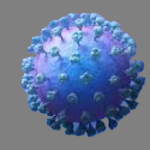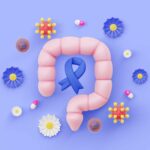Breast Cancer: Understanding Causes, Symptoms, and the Strong Importance of Awareness
Millions of men and women are affected by breast cancer, which is still one of the most common cancers in the world. Better knowledge of this complicated illness has been made possible by developments in medical research, early detection, available treatments, and heightened awareness efforts. Nonetheless, a lot of people continue to struggle with stigma, ignorance, and misconceptions about breast cancer. The purpose of this blog article is to examine the complexities of breast cancer, including its causes, symptoms, and the vital role that awareness plays in the fight against it.
What is Breast Cancer?
One kind of deadly tumours that arises in cells of the breast is called breast cancer. It can start in the ducts or lobules of the breast, but it can spread to other organs or invade surrounding tissues. It is divided into several forms, including triple-negative breast cancer, invasive ductal carcinoma, and invasive lobular carcinoma, each of which needs a different treatment strategy.
Causes of Breast Cancer
An in-depth examination of the causes of breast cancer is necessary for its timely identification and treatment. Although it is impossible to identify a single cause with certainty, a number of risk factors have been identified:
1.Genetic Factors
Family History
Breast tumours may be more common in women with family histories of the disease. Ovarian and breast tumour risk is increased by certain deletions in the BRCA1 and BRCA2 genes.

Inherited Mutations
Genetic predisposition can contribute to breast cancer. An estimated 5–10% of instances are associated with genetic mutations, despite the fact that most cases are sporadic.
2.Hormonal Factors
– The degree of risk is influenced by the length of time a woman is exposed to her reproductive hormones, progesterone and oestrogen. Risk factors include things like menstruation starting early in life or experiencing menopause later in life.
3.Lifestyle Factors
– Diet and Physical Activity
Obesity, a saturated fat-rich diet, and sedentary behaviour are all risk factors for breast cancer. On the other hand, a well-rounded diet full of healthy grains, fruits, and vegetables may help lower risk.
-Alcohol Consumption
According to studies, drinking alcohol may raise your risk of developing breast cancer, and the more you drink, the higher your risk becomes.
4.Environmental Factors
– Radiation exposure, especially during childhood, has been associated with an increased risk of breast cancer in later life. Furthermore, although study in this area is still ongoing, substances like some pesticides and industrial items might possibly be involved.
5.Age
As humans age, especially after the age of 55, their chance of developing a breast cancer grows.
Breast cancer diagnoses are more common in women over this age, while younger people can also be affected.
Symptoms of Breast Cancer
For breast cancer to be successfully treated and managed, early detection is essential. Finding changes that can point to breast cancer can be aided by routine self-examinations and clinical testing. Typical signs and symptoms include:
1.Lump or Mass
A uncomfortable bump or cancer in the breast region is often among the initial indications of breast cancer. Although many lumps are benign, it’s vital keep in mind that medical professionals should evaluate any new abnormalities.
2.Changes in Breast Shape or Size
– An underlying problem may be indicated by breast swelling or changes in size or form, especially if they happen unexpectedly and affect only one side of the breast.
3.Skin Changes
A breast tumour that is persistent could show up as a new itchy, fraying, or smashing. Skin texture changes, such a scaly look around the nipple, could also be cause for concern.
4.Nipple Discharge
– A medical practitioner should look into any nipple discharge that is unrelated to nursing, particularly if it contains blood.
5.Pain or Tenderness
– Persistent breast pain, particularly if accompanied by swelling or other changes, calls for evaluation, even though it is frequently connected to hormonal changes or benign illnesses.
The Importance of Awareness
Raising awareness of breast cancer is essential to lowering death rates and successfully treating the condition. Significant advancements in diagnosis and treatment are the result of awareness initiatives that emphasise education, prevention, and early detection. The following are some ways that awareness affects the treatment of breast cancer:
1.Education and Outreach
– Campaigns for public awareness, like October’s Breast Cancer Awareness Month, are crucial in informing people about the symptoms, risk factors, and significance of routine screenings, including mammograms.
2.Promoting Regular Screenings
– Positive prognoses are associated with early detection, which can be achieved by routine tests. Annual mammograms should be performed on women over 40 or those with risk factors. The likelihood of a successful therapy for breast cancer might be greatly increased by early detection.
3.Reducing Stigma
– By promoting candid conversations about symptoms, therapies, and patients’ and survivors’ mental health, awareness campaigns also aim to lessen the stigma attached to breast cancer.
4.Support Networks
– Raising awareness encourages the formation of networks and support groups for breast cancer patients, providing emotional and psychological support. During therapy and rehabilitation, it can be quite helpful to connect with people who have gone through similar things.
5.Funding Research
– More money and resources are frequently allocated to breast cancer research as a result of increased awareness. By funding research, scientists and medical professionals can create novel therapies and enhance patient care.
Conclusion
Breast cancer is a complex illness that impacts a large number of people and families worldwide. In order to combat this sickness, it is essential to comprehend its causes, identify its symptoms, and raise awareness. We can endeavour to lower the incidence of breast cancer and enhance the prognosis for individuals impacted by the disease by promoting a culture of awareness and preventative health actions.
In the end, the more we educate ourselves and promote candid conversations about breast cancer, the closer we are to a time when everyone will have access to supportive care, efficient treatment, and early detection. Both men and women need to take responsibility for their health by making screenings a priority, standing up for themselves, and taking part in community awareness campaigns. Together, we can eliminate breast tumours as a leading cause of death globally.
Suggestions for readers
Amazon.com
- Sometimes You Forget You Are Awesome Gifts for Women Christmas Gifts for Mom
- HAPPYPOP Christmas Gifts For Women – Breast Cancer Socks, Breast Cancer Awareness Gifts, Inspirational Gifts
- Get Well Gifts For Women, Inspirational Gifts For Women, Sending Hugs Gifts For Women
- SteadStyle Get Well Soon Gifts for Women – Inspirational Gifts Blanket, Feel Better After Surgery Gifts for Sick Women
Amazon.in
- DIGITAL SHOPEE Women’s Fur Skull Cap (Esg-Black-Winter-Woolen-Cap_Black_M), Medium
- The Cancer Code : A Revolutionary New Understanding Of A Medical Mystery
- Your Life In Your Hands: Understand, Prevent and Overcome Breast Cancer and Ovarian Cancer










